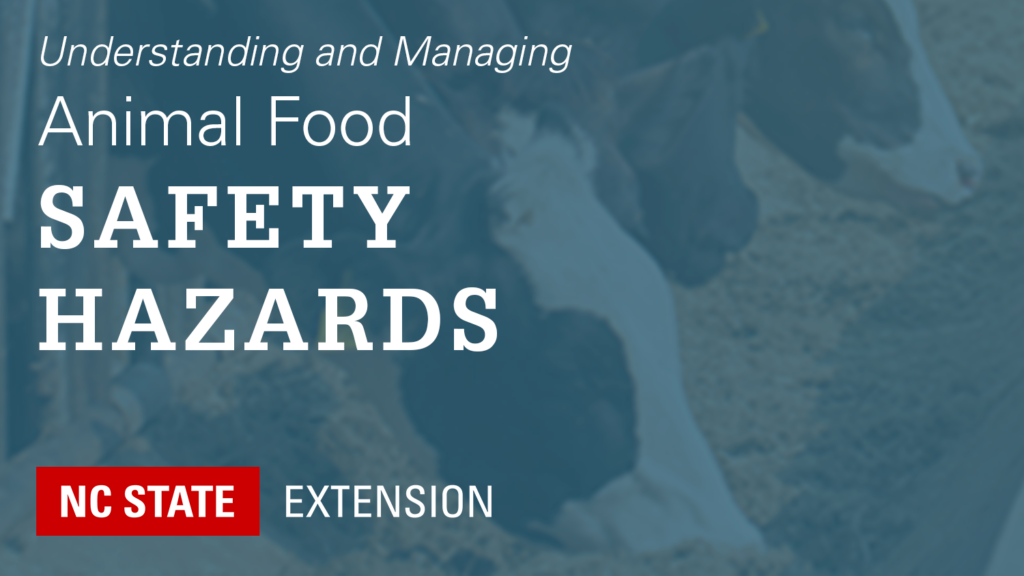Understanding and Managing Animal Food Safety Hazards: New Factsheet Series
go.ncsu.edu/readext?768665
en Español / em Português
El inglés es el idioma de control de esta página. En la medida en que haya algún conflicto entre la traducción al inglés y la traducción, el inglés prevalece.
Al hacer clic en el enlace de traducción se activa un servicio de traducción gratuito para convertir la página al español. Al igual que con cualquier traducción por Internet, la conversión no es sensible al contexto y puede que no traduzca el texto en su significado original. NC State Extension no garantiza la exactitud del texto traducido. Por favor, tenga en cuenta que algunas aplicaciones y/o servicios pueden no funcionar como se espera cuando se traducen.
Português
Inglês é o idioma de controle desta página. Na medida que haja algum conflito entre o texto original em Inglês e a tradução, o Inglês prevalece.
Ao clicar no link de tradução, um serviço gratuito de tradução será ativado para converter a página para o Português. Como em qualquer tradução pela internet, a conversão não é sensivel ao contexto e pode não ocorrer a tradução para o significado orginal. O serviço de Extensão da Carolina do Norte (NC State Extension) não garante a exatidão do texto traduzido. Por favor, observe que algumas funções ou serviços podem não funcionar como esperado após a tradução.
English
English is the controlling language of this page. To the extent there is any conflict between the English text and the translation, English controls.
Clicking on the translation link activates a free translation service to convert the page to Spanish. As with any Internet translation, the conversion is not context-sensitive and may not translate the text to its original meaning. NC State Extension does not guarantee the accuracy of the translated text. Please note that some applications and/or services may not function as expected when translated.
Collapse ▲New food safety regulations, especially the Food Safety Modernization Act of 2011 (FSMA), require animal feed and ingredient processing facilities to evaluate their ingredients and processes for the presence of hazards that could impact food safety.
In a new factsheet series from the NC State Animal Food Safety program, we’ll explore:
- different hazards that could be present in animal food ingredients and products, and
- how consumers and processors can protect their animals and products from these potential hazards.
It’s important for those responsible for the implementation of food safety programs (Preventive Controls Qualified Individuals) to be aware of food safety hazards that could be present in their ingredients, products and facility.
#1 in the Series: Aflatoxins
The first factsheet in the series is all about aflatoxins. The factsheet includes
- definitions,
- health impacts on animals,
- mitigation guidelines for producers and
- tips for how consumers can keep themselves – and their pets – safe.
Coming Up in the Series
We’ll announce new factsheets in the series on our portal and on our Facebook and Instagram accounts. Subscribe to our updates and follow us on social media to be the first to get our factsheets and news.
Some of the topics we’ll be exploring are
- hazards that lead to recalls,
- potential hazards in the news and media, and
- new potential hazards to be aware of.
Want to know more about specific hazards in your facility or animal food, or how to mitigate potential hazards? Let us know! Your suggestion could be the featured topic of our next factsheet.
You can also see all of the factsheets from Feed Milling and Animal Food Safety through our NC State Extension portal.
If you have questions about animal food safety, including aflatoxins or other potential hazards, please contact Marissa Herchler.




